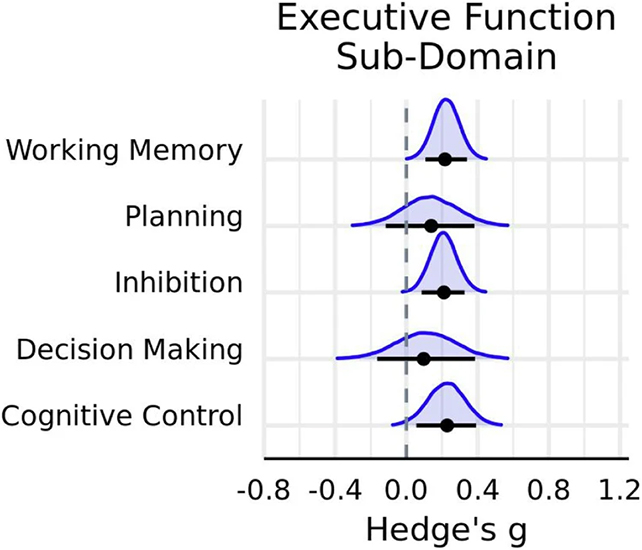Regular exercise is generally good for us, but the ins and outs of how to exercise and how long remains a question of costs and benefits. In a new study, researchers have shown that even short bursts of activity can give us a noticeable boost in gray matter.
The researchers, from the University of California, Santa Barbara, searched 113 previous studies, involving a total of 4,390 participants. When it comes to one-off exercise sessions, the results suggest that vigorous activities are best for cognition.
In particular, cycling and high-intensity interval training (HIIT) were associated with the greatest differences in executive functioning – that is, the part of our cognitive abilities that deals with working memory and the ability to plan and multitask.

“Our work showed the strongest evidence for a positive effect of single exercise sessions on cognition and that this evidence was influenced by a variety of factors,” says neuroscientist Barry Giesbrecht, of UC Santa Barbara.
The positive effect was not clear on all cognitive measures: while participants had better overall reaction times after single training sessions, for example, there was no increase in accuracy on cognitive tasks .
This suggests that we are most likely dealing with a complex picture involving several factors. It is possible that in time, certain training sessions will be specifically adapted to produce an increase in intellectual abilities, when necessary. Workouts involving mental and physical challenges might also help.
The greatest brain gains were seen during exercises lasting less than 30 minutes, as well as during cognitive tests. After exercise rather than during the workout itself. However, even the largest jumps have been relatively small overall.
“These results are surprising, given that exercise intensity is thought to have an inverted U-shaped relationship with performance; where moderate-intensity exercise causes the greatest improvements while more exercise intense and tiring requires reductions,” the researchers write in their published article.
The message here, as has been the case in many previous studies, is that you don’t need to do a lot of exercise to start feeling the benefits – sometimes it only takes 10 minutes. This is encouraging for those of us who struggle to settle into a regular routine.
This also applies to other aspects of health besides brain flexibility. Previous research has found that high-intensity interval training (HIIT) training may be beneficial for improving heart health and reducing the risk of future health problems.
After carefully combing through data collected by other researchers, the team behind the study now wants to collect new data on the subject, both through laboratory testing and by monitoring real workouts in the real world.
“There is moderate evidence that acute aerobic exercise induces a small improvement in overall performance on cognitive tasks, particularly on those that probe executive function and measure response time,” the researchers write.
The research was published in Communication psychology.



